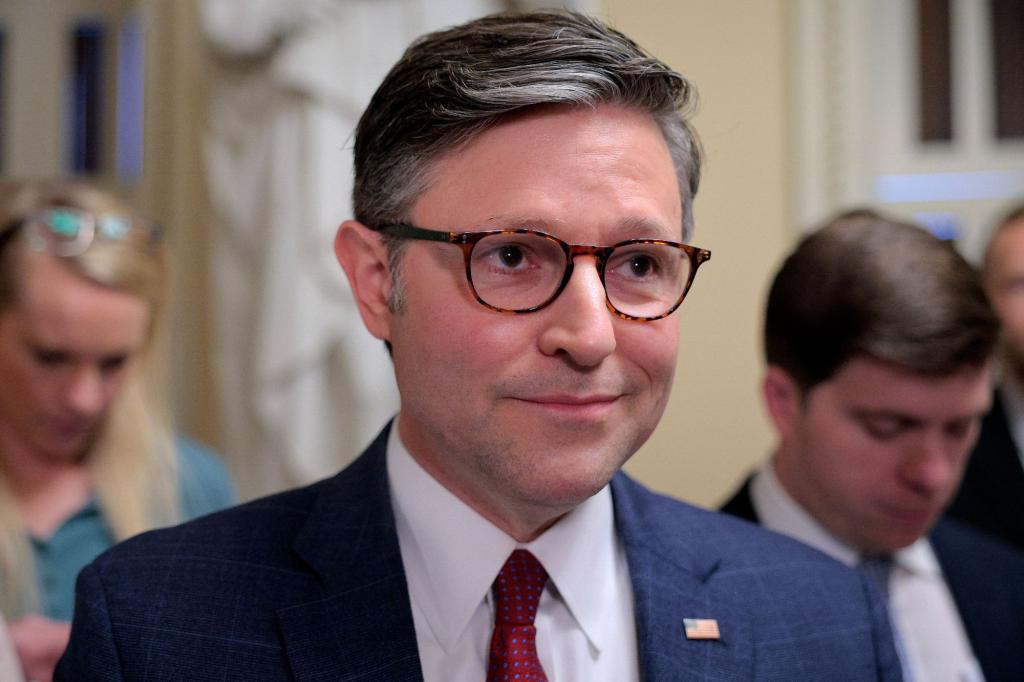From the right: Medicaid Reform, Now or Never
“Republicans would be making a terrible blunder to let” Democrats’ fear-mongering about Medicaid reform “intimidate them from fixing the program,” warns The Wall Street Journal’s editorial board.
Under the ObamaCare law’s Medicaid expansion, the feds pay states more for eligible “prime-age adults” than “for pregnant women, the disabled and other low-income populations.”

Huh! “You won’t find many voters who think the federal government should focus scarce health resources on working-age men over poor children and pregnant women. Yet that is what the perverse financing formula encourages.”
Fact is, “the GOP can make the strong and accurate argument that fixing this bias in federal payments is shoring up the program to better serve the vulnerable,” and “Republicans may not get another opening for decades to fix the core problems in Medicaid.”
Eye on NY: GOP Savings May Cost State $5B
The stakes for New York “are high” as Republicans eye Medicaid savings from targeting the “so-called expansion population,” notes the Empire Center’s Bill Hammond.
These are under-65, non-disabled adults “with income up to 138 percent of the federal poverty level.”
ObamaCare made them Medicaid-eligible, with the feds funding 90% of the costs, instead of the 50% it pays for most Medicaid recipients in New York.
Republicans may make the feds’ share 50% for these people as well, which could cost New York state 6% of its funding, or $5.3 billion, based on 2023 numbers.
Amazingly, such changes “would be unlikely to reduce” federal Medicaid spending for New York “in absolute terms.” They’d merely “slow growth compared to current trends.”
Ed desk: The School-Closures Obscenity
Teachers and administrators simply “didn’t care about having kids in school” during COVID, David Zweig recalls at New York magazine; “a series of falsehoods” related to risk birthed the “fantastical list of demands” from teachers unions and others around reopening.
Recall too that the American Academy of Pediatrics was “very strongly in favor of getting kids into schools, but as soon as Trump came out in favor of reopening, they completely reversed their position.”
“Childhood is achingly brief.” The pandemic saw little kids miss a year or more of “running around in a playground with friends” as they were forced to wither away “in the gray light of their Chromebooks.”
The idea that this “wasn’t a tremendous harm is absurd.”
Space beat: The Trouble With Hubble
“Without question, the Hubble Space Telescope is a marvel of technology,” gushes Mark Whittington at The Hill.
The last mission to the 35-year-old instrument was in 2009; it “has been operating ever since then without a servicing mission.”
Now “not only is Hubble’s orbit starting to decay,” but just “two of its six gyroscopes are functioning.”
Yes, “the Hubble was designed to be serviced by a space shuttle orbiter.” But the option of “using a SpaceX Crewed Dragon” to “boost the telescope’s orbit,” after which “spacewalking astronauts would perform repairs and enhancements,” risks “the astronauts breaking the space telescope.”
Bigger-budget ideas: a SpaceX Starship could simply “lift huge space telescopes with many times the Hubble’s capabilities” into orbit.
Libertarian: Ax Regs That Limit US Workers
“At the core of Trump’s economic vision is sincere worry about the decline in prime-age male labor-force participation,” observes Reason’s Veronique de Rugy.
That decline “has real social consequences” as “economic insecurity among non-college-educated men fuels declining marriage rates, weaker communities, and more public health crises.”
Yet the issue is “more complicated than Trump’s ‘China stole our jobs’ narrative,” and is “rooted in problems that tariffs and industrial policy won’t fix.”
A “thicket” of government regulations has erected “huge hurdles to interstate mobility, effectively locking people into stagnant local economies.”
“We must remove the obstacles and perverse incentives that make living with economic stagnation too rational a choice for too many people.”
The key to “restoring work force participation” would be “tearing down barriers” erected by the government.
— Compiled by The Post Editorial Board


